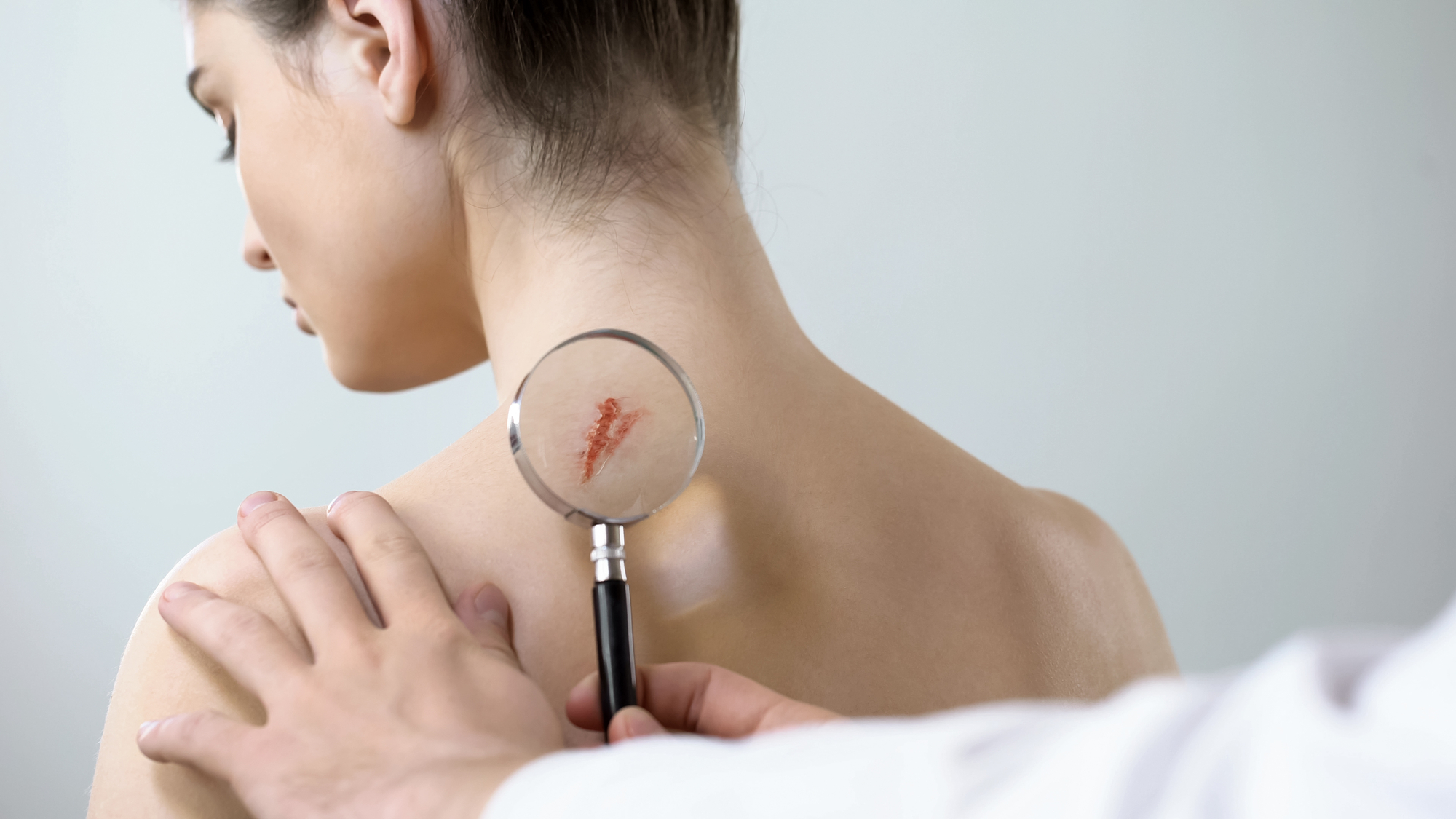What is Scar Revision?
A scar by definition is a permanent change in skin consistency. While a scar, unfortunately, cannot be removed and is forever, we can improve its appearance with scar revision surgery.
People often want to get rid of a scar because they’re self-conscious of the way it looks. For others, scars are painful, itchy, and impair functionality. However, even with discomfort, insurance doesn’t typically cover scar removal.
With scar revision therapy, we can treat scars resulting from acne, surgery, or injury. The way we treat these depends on the appearance of the scar itself and what aspect makes it stand out: color, elevation, or texture.
Discolored Scars
Red: Many scars are red, resulting from thickened blood vessels under the scar. We treat these using a laser that specifically targets redness. These lasers bypass the top layer of skin and cauterize the thickened blood vessel underneath to eliminate redness.
Brown: To diminish brown scars, we prescribe a topical Retin-A or hydroquinone cream. These medications lighten brown spots.
White: If the scar is white, we can’t eliminate the color differential the same way. Instead, we try to blend the skin around it so it’s not as stark.
Raised or Depressed Scars
Scar tissue is full of collagen, raising it above the skin. In many cases, this elevation can be treated with a steroid injection. In some cases we need to surgically de-bulk the scar first, then we can begin more subtle treatments to refine the appearance of the remaining surgical scar.
With depressed scars, we use microneedling to boost collagen production and raise the scar to an even level.
Textured Scars
Some scars have a texture that differs from normal skin. The texture can be improved using chemical peels and/or laser resurfacing.
How Does Scar Revision Treatment Work?
The extent of scar revision depends on the scar itself and what distinguishes it from the surrounding skin. Treating scars from acne, surgery, or injury starts with looking at the most prominent issue, then finding a treatment that best minimizes that aspect.
Acne Scars
The majority of acne scars are indented. The scar is pulling the surface of the skin down, lowering it compared to the rest of the skin. The most common method for improving the appearance of these indented scars is microneedling.
Patients who want to treat minimal acne scarring while diminishing wrinkles, tightening pores, and fading brown spots may opt for a chemical peel. However, if only targeting acne scars, other methods are more effective.
Laser resurfacing is always a good option for minimizing acne scars. The fractional laser offers a little-downtime, low-risk option for blending defects with the surrounding skin.
Surgical Scars
Surgical scars can vary greatly in color, elevation, and texture. Is it bumpy? Discolored? Raised? Sunken? Whatever makes the scar stand out is what we want to address first.
If it’s large, we start with cosmetic surgery to get rid of the bulk and make it a smaller scar. Then, we can choose refining treatments.
Injury Scars
Patients who experience disfiguring from major injury often need surgical treatment first. We then address color, elevation, and texture. Using different modalities such as lasers, chemical peels, injections, filler, and skin tightening devices, we can make the scar blend into the surrounding tissue, so it doesn’t look as visible.
FAQ’s
Does it hurt?
Most procedures don’t hurt once we numb the skin. For many procedures, we use lidocaine to minimize pain at the beginning. While most procedures will be at least mildly uncomfortable, they’re tolerable. We do our best to keep patients as comfortable as possible.
Does over-the-counter scar therapy work?
Many OTC scar therapies help fresh wounds in the healing process. However, these treatments will do nothing for long-term scars. Many are truly a placebo effect. A scar’s appearance naturally improves with time — the body is always regenerating cells. While some patients claim these medications works, the scar would look better with time even if you did nothing to it.
If you choose an over-the-counter treatment, we recommend a silicone gel to protect the skin. Scars often don’t heal well because they get re-injured. These gels seal in the moisture and protect it from further harm.
Click here to find an Epiphany provider near you.

